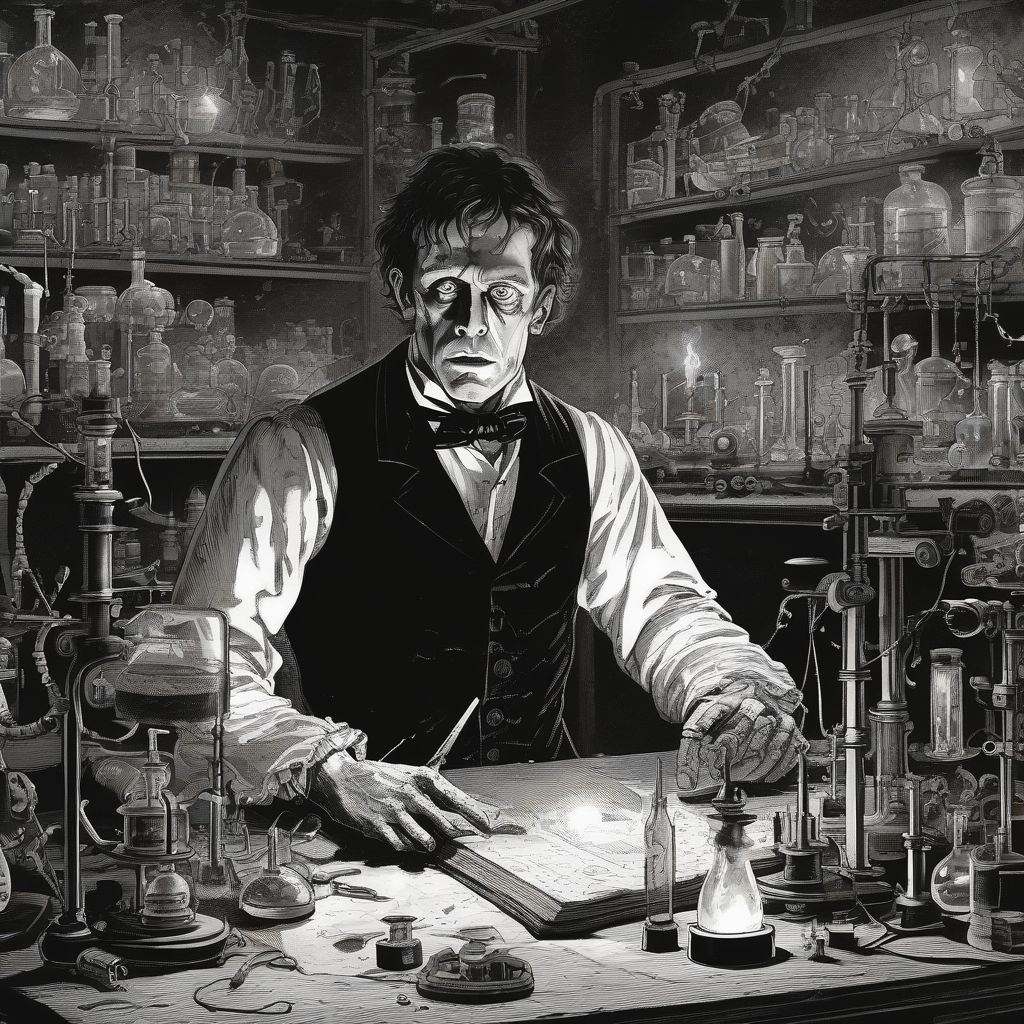Imagine a world where science pushes the boundaries of life itself, a world where the creation of artificial life blurs the lines between human and monster. This isn’t a scene from a modern sci-fi blockbuster, but rather the core of Mary Shelley’s Frankenstein, a novel published over two centuries ago that continues to shape the landscape of science fiction today. So, what exactly are Mary Shelley’s contributions to science fiction? Let’s delve into the enduring legacy of this groundbreaking author.
The Birth of Science Fiction: Frankenstein and its Impact
A Cautionary Tale of Scientific Hubris
Frankenstein tells the story of Victor Frankenstein, a brilliant scientist who achieves his dream of creating life from inanimate matter, only to be horrified by his creation. This narrative explores the dangers of unchecked scientific ambition and the ethical implications of tampering with the very essence of life. It’s a cautionary tale that resonates even more powerfully today as advancements in fields like genetic engineering and artificial intelligence bring us closer to the realities Shelley envisioned. As Dr. Emily Alder, a literary historian specializing in the Romantic era, notes, “Frankenstein isn’t just a monster story; it’s a profound meditation on the responsibilities that come with scientific power.”
The Prototype of the Mad Scientist
Victor Frankenstein, driven by his obsession and blinded by the potential of his discoveries, becomes the archetype of the “mad scientist,” a figure that has become a staple in science fiction. His single-minded pursuit of knowledge, regardless of the consequences, foreshadows countless characters in subsequent science fiction works who grapple with the ethical dilemmas of their creations.
The Exploration of “What it Means to be Human”
Frankenstein raises fundamental questions about human nature, identity, and the very definition of life. The creature, abandoned by his creator and ostracized by society, grapples with his existence and seeks acceptance and understanding. This exploration of what it means to be human, a central theme in science fiction, finds its roots in Shelley’s masterpiece. “The creature’s quest for belonging,” observes Professor David Miller, a leading Shelley scholar, “forces us to confront our own prejudices and biases about what constitutes humanity.”
 Mary Shelley's Frankenstein
Mary Shelley's Frankenstein
Shelley’s Influence on Subsequent Science Fiction
The Legacy of the Gothic and Romantic
Shelley’s writing is deeply rooted in the Gothic and Romantic traditions, evident in the novel’s atmospheric settings and exploration of intense emotions. This influence can be seen in subsequent science fiction works that blend elements of horror, romance, and social commentary. Think of the dark, dystopian landscapes of Blade Runner or the emotional depth of Arrival.
The Rise of Artificial Intelligence and Biotechnology
Frankenstein‘s exploration of artificial life has profoundly influenced the way science fiction writers have approached themes of artificial intelligence, robotics, and biotechnology. From Isaac Asimov’s robot stories to the cyberpunk worlds of William Gibson, the echoes of Shelley’s cautionary tale are unmistakable.
The Feminist Perspective in Science Fiction
As a female author writing in the early 19th century, Shelley’s perspective offers a unique lens through which to explore the social and cultural anxieties of her time. This feminist undercurrent, often overlooked, has paved the way for female science fiction writers to explore themes of gender, power, and social justice within the genre.
Mary Shelley’s Continuing Relevance
A Timeless Classic
Frankenstein continues to be read, studied, and adapted in various forms, demonstrating its timeless appeal and enduring relevance. The novel’s themes resonate with contemporary readers grappling with the rapid advancements of science and technology.
Inspiring Dialogue and Debate
Shelley’s work continues to spark discussions about the ethical implications of scientific progress and the potential consequences of playing God. It prompts us to consider the boundaries of human intervention and the responsibilities that come with knowledge and power.
Shaping the Future of Science Fiction
Mary Shelley’s influence can be seen in the ongoing evolution of science fiction. The novel’s themes and motifs continue to inspire new generations of writers and filmmakers to explore the complex relationship between humanity and technology.
Conclusion
Mary Shelley’s contribution to science fiction is undeniable. Frankenstein, more than just a horror story, is a foundational text that explores the complex interplay between science, ethics, and human nature. Its influence can be traced through the history of the genre, shaping the way we think about artificial intelligence, biotechnology, and the very definition of life. The novel’s enduring legacy lies in its ability to spark dialogue, inspire debate, and ultimately, shape the future of science fiction. What are your thoughts on Mary Shelley’s impact on science fiction? Share your perspectives in the comments below and let’s continue the conversation.



